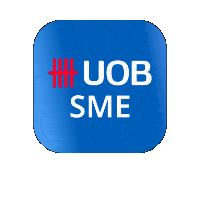You are now reading:
UOB enhances digitalisation for SMEs in Malaysia

Proper cash flow management is crucial for SMEs. Here are some pitfalls you should be aware of and avoid them.
Find out more
UOB continues to extend unwavering support, especially in these challenging times through our value-added services under UOB BizSolution/BizMoney for SMEs.
Find out more
Be aware of the trade financing and solutions available so that you can understand how to better manage your cash flow and cross-border trading risks.
Find out more
Business insurance protects company from unforeseen issues, improves the company’s credibility and boost employee productivity.
Find out more
Subscribe for your regular dose of business tips, insights, and inspiration.
Find out moreyou are in Business Banking


You are now reading:
UOB enhances digitalisation for SMEs in Malaysia
Insights into digitalisation by Mr. Raymond Chui, Head of Business Banking Malaysia, UOB
The COVID-19 outbreak and near economic shutdown has meant that SMEs in particular, are struggling. In Malaysia, where SMEs comprise 98.5 per cent of enterprises1 and contribute 38.3 per cent of GDP2, COVID-19 is having profound implications on businesses. The Movement Control Order (MCO) has impacted credit markets, disrupted supply chains, and adversely affected worker productivity, leaving many SMEs fighting to stay in business.3 However, SMEs can strengthen their resilience by adapting digitalisation more aggressively.
The Malaysian government has been pushing the digitalisation agenda since 2019, through their Budget 2020, by providing several incentives for SMEs to go digital. This comes in the form of a 50 per cent, or up to RM5,000, matching government grant for each SME adopting the systems mentioned above4. Over five years, the commitment from the government with respect to this grant stands at RM500 million.4
COVID-19 has further accelerated Malaysia's commitment to digitalisation for its SMEs though. For instance, in April, the Malaysia Digital Economy Corporation (MDEC) launched the SME Digital Quickwins programme that facilitates the process of connecting technology solution providers with SMEs and helps SMEs with the next steps once Malaysia’s MCO is lifted5. The emphasis on social distancing and remote working has helped to clarify the benefits of digitalisation and being online and will likely accelerate the rate of digitalisation among SMEs in Malaysia where of the 907,065 SMEs in the country, there are only an estimated 32 per cent currently digitalised6.
As part of a long-term strategy, the digitalisation of SME operations such as payments, planning, HR operations and inventory management can help cut costs and make a business more efficient and competitive. It also connects enterprises to a large number of people in a business world that increasingly is online, helping SMEs to scale their businesses in an expanding and lucrative digital economy.
A recent study found that if all SMEs are digitalised, by 2025 the digital economy could grow ASEAN GDP by as much as US$1.13 trillion7. The same study found that productivity improvements due to digitalisation could add between US$400 billion to US$600 billion to ASEAN GDP7. Moreover, digitalisation would allow SMEs to expand their digital markets through financial inclusion or e-commerce, and that could add another US$300 billion to US$400 billion7. These numbers indicate that SMEs in Malaysia have much to benefit from digitalising.
UOB Malaysia is well-placed to help SMEs: The bank is committed to providing SMEs with solutions that enable digitalisation and greater efficiency. UOB Banking customers can now also apply for the SME Digitalisation Initiative grant provided by the Ministry of Finance Malaysia through UOB SmartBusiness.
UOB SmartBusiness is a cloud-based integrated digital solution for SMEs looking to digitalise their core businesses and streamline back-end operations processes, so they can be managed through a single digital platform. It integrates solutions such as sales and invoicing, accounting and bank reconciliation, expenses management, payroll and HR management, purchases, deliveries and scheduling, customer relationship management and inventory management. Integrating all these processes onto a single platform frees up resources that can be put to better use. Additionally, the adoption of the suite allows SMEs to streamline all these processes and reduce workloads on their likely already stretched teams.
UOB also looks to support SMEs through a three-month business transformation programme that enables them to digitalise operations to enhance growth and productivity. The Jom Transform Programme8 provides SMEs with the tools to learn about digital transformation processes such as business process re-engineering. The programme also provides SMEs with the opportunity to work with technology partners to implement pilot projects for solutions in their operations.
SMEs that have completed the programme are likely to see a 30 per cent improvement in productivity through digitalisation9. Additionally, these SMEs can also expect to reduce time spent on manual administration processes by as much as 30 per cent. SMEs can also pilot solutions such as e-commerce solutions, lead generation, content creation, and digital marketing, which should result in an up to 10 per cent increase in terms of sales and customer acquisition9.
UOB can be the right partner to help Malaysian SMEs through this crisis and enable them to thrive in the new business environment. SMEs that seize opportunities, adapt to the new realities, and accelerate the development of their digital capabilities, will have a greater chance of success.

07 Aug 2024 • 4 mins read

18 Jan 2024 • 3 mins read

27 Oct 2023 • 3 mins read

23 Aug 2023 • 3 mins read
